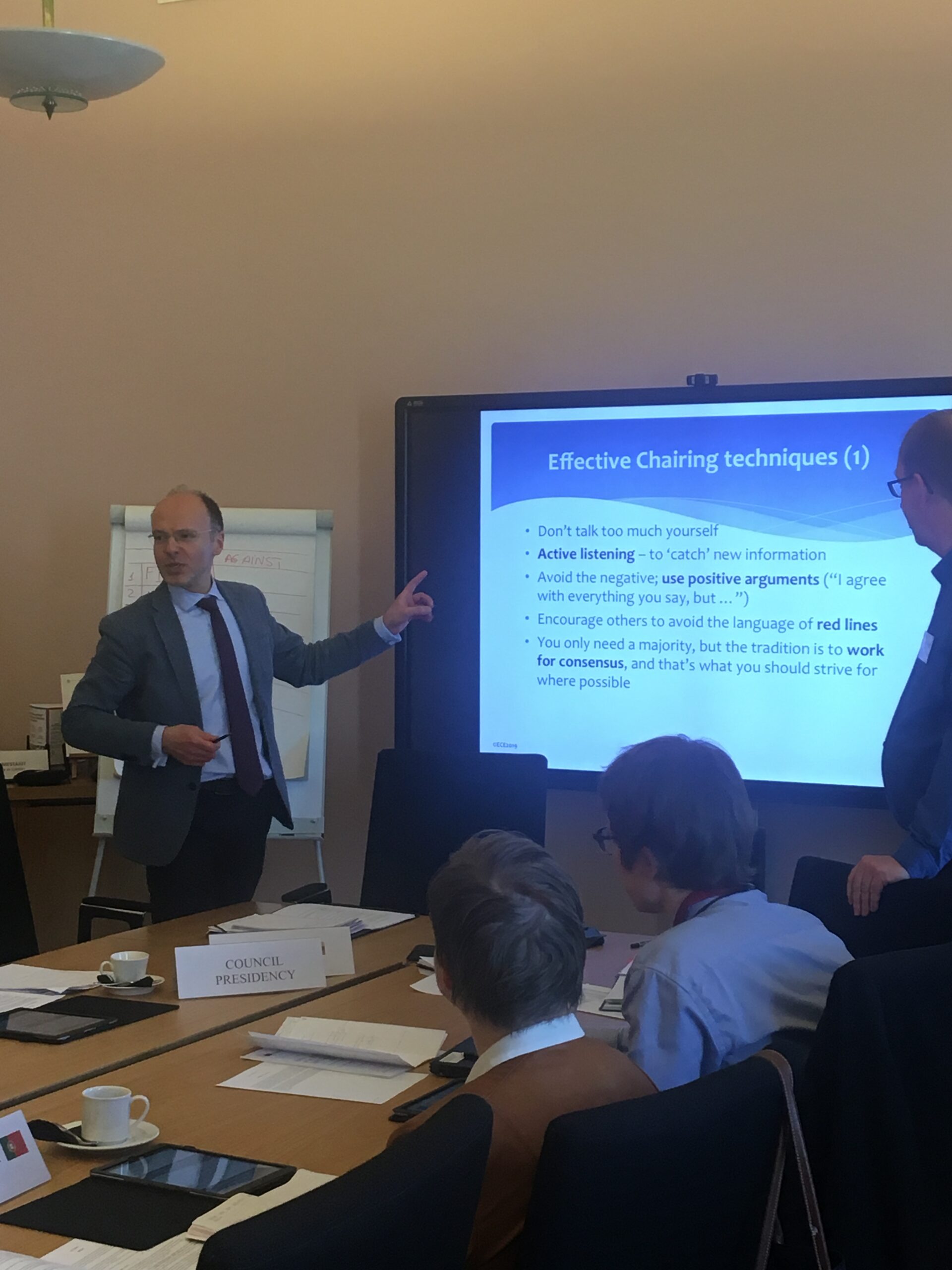Preparing for the EU Council Presidency
The cycle of the rotating Presidency of the the Council of the European Union comes around rearly for each Member State. This means that the 1000 or so officials (including government ministers) directly involved in the Presidency, often only have one opportunity in their professional careers to pick up the particular skills necessary for the role. Although often trained for the Presidency, these are life-long skills that serve well above the Presidency, becoming useful in other contexts.
Our training on Preparation for the EU Presidency targets all the officials in the national administration of the Member State, likely to be involved in the Presidency business – from those at the sharp end serving in the Permanent Representation in Brussels, to those working in the capital-based line ministries/agencies with any kind of Presidency role. We also offer montoring to ministers who will chair Council formations.
Our training is designed to be bespoke to suit the needs of a particular Member State, but the courses loosly fit around the following three modules:
- English for the EU Presidency I
- English for the EU Presidency II
- Chairing for the EU Presidency
English I and English II courses are graded: most participants will do both, while those with more experience (eg officials based in Brussels) will suffice the second. The EU Council Secretariat offers training to Member State officials expecting to chair the Council working groups. However, the teams in line ministries engaged in the EU business, go much wider and include: deputy chairs, coordinators, spokespersons, policy leads, administrative assistans, etc. Our traininng reaches the all, putting them on the same page, fostering effective teamwork and empowering to deliver success for the EU as well as for their own country. Our training look at the EU Presidency from wider scope including the perspective of the Member State, rather than simply providing the ‘Brussels view’.
Methodology Should it be preferred by the client, video redording and/or individual feedback to each participant can be offered. Typical class size for English I and English II is between 16-20 participants. For the Chairing Skills it’s between 12-16 people. We supply one or two trainers for English I and English II training, while the Chairing Skills will typically have two trainers.
Our approach in the courses is to highlight the key points and to provide participants with as much practice in the actual process as possible. While the training will include theoretical presentations, seminars and workshops, the main focus is always on simulation exercises, giving the participants several opportunities to explore their own chairing styles and to observe and learn from the styles of others, as well as to practice negotiation in specific institutional context.
Our experience
The trainers of Diplomatic Skills Lab have an outstanding track record in training to help Member States to prepare for their EU Council Presidencies. They have been part of international training tenders targeted to Slovenia (2020-2021), Finland (2019), Estonia (2016) and Lithuania (2013).
Coming originally from Ireland, the Netherlands, Germany, France and Lithuania as well as from the UK, our trainers are practitioners with hands-on experience of running the EU Presidency. They have been Ambassadors, Deputy Permanent Representatives and Chairs of Council Working Groups in Brussels. They look to share their practical experience, mentoring participants through internative exercises, providing individual advice along with constructive feedback.


